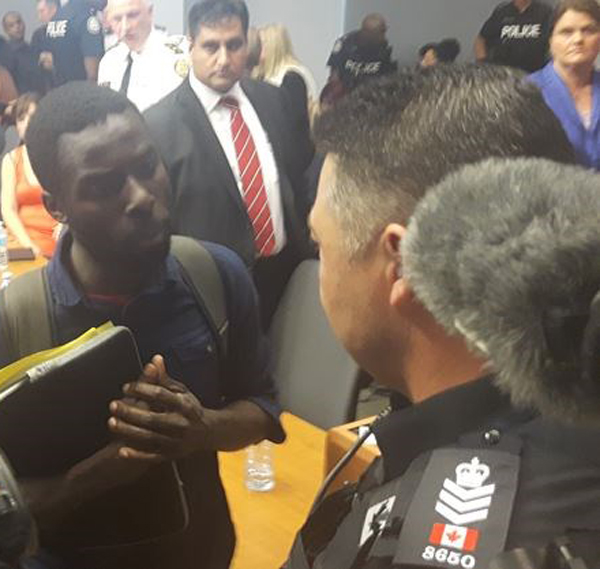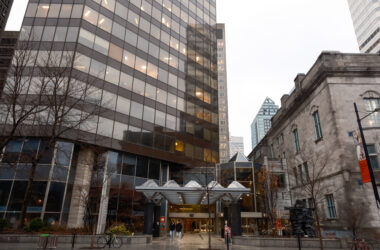Writers and activists Desmond Cole, Robyn Maynard, and Andrea Ritchie visited McGill on Nov. 8 for a panel discussion on the nature of racial profiling and police violence, hosted by the Black Students’ Network (BSN). In conversation with McGill Gender, Sexuality, and Feminist Studies Professor Rachel Zellars, they discussed the history of law enforcement discrimination in Canada and the country’s inability to confront its own racism.
For Maynard, tackling racial inequality starts in the classroom; telling young learners honest historical reports of systemic violence in Canada is the most important step to addressing the country’s history of discrimination.
“[Accurate historical accounts] are important, especially in Canada, where we’ve really been denied this history of slavery,” Maynard said. “I asked at my book launch with several hundred people, ‘Did anyone learn about the history of Canadian slavery in elementary or high school?’ Two people raised their hands. Specifically because we are raised to believe that slavery and racism and police violence is something that’s a very American crisis.”
Cole’s advocacy against carding in Toronto—a process in which the police stop citizens and record personal information about them, such as their appearance and contact information—made him a prominent voice against discrimination in Canada. He spoke about activists’ efforts to limit racialized police violence in Ontario.
“Why are we sending police to noise complaint calls?” Cole said. “Why is it that when two neighbours at 11 in the evening have a dispute about noise, somebody with a gun has to come and solve it? This is a danger to black life every single time it happens. But the police associations say ‘No! My job security! My hold on power! You need us! Anything could happen!’ […] But we know what ‘anything could happen’ means. We know who ‘anything could happen’ is going to land on.”
The panelists agreed that enabling and combatting racism occurs at an institutional level, but Ritchie pointed out that individuals can also take action to counter discrimination.
“The cops don’t just [act] without our permission, we call them in to do it,” Ritchie said. “People call child welfare on each other, people call noise complaints on each other, elders call about the youth on the corner. So let’s not be the third-party machine including the police. We have to get rid of the values producing prisons, police, and cages, not just the prisons, police and cages.”
During the event, BSN Interim President Andreann Asibey elaborated on the importance of BSN for supporting students on campus.
“We wish people would reach out to us more,” Asibey said. “There are many people who preach about social justice and decolonizing education and advocating [against] anti-black racism but they don’t reach out to us, it’s quite sad. We have an office, we want people to come chat with us. I know we are the Black Students’ Network, but we are here for everybody.”
Asibey also reiterated some of the panelists’ points, highlighting the importance of supporting black students affected by the racism that is pervasive within institutions like McGill.
“We reach out to black students because historically we don’t have a sense of support and community at institutions like this, but we are also here for non-black people because there are other racialized students and people of colour we can be here for,” Asibey said. “We are here to work together.”









